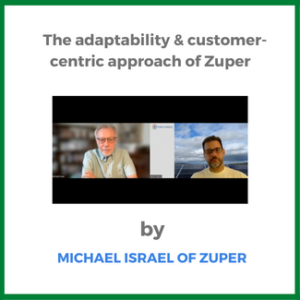Michael Israel of Zuper, a provider of an end-to-end field service management software application for solar, storage and other field service businesses, speaks with Kerim Baran of SolarAcademy about what differentiates Zuper’s offering from other solar-focused SaaS software. Michael particularly points to Zuper’s adaptability and customer-centric approach. The video is below.
Below is the video transcription.
Kerim Baran of SolarAcademy: What kind of solar companies use your software? Is it the small two in the truck type installer or medium size or larger? Or is it the financing companies or the asset holders, the funds specifically? And in general, in the solar industry, where do you see Zuper playing, given the current need for increased solar and storage deployments in the US.
Michael Israel of Zuper: Yeah, I think traditionally our marketplace has been small to mid-size businesses. That’s how we started, um, But we are also gradually growing into more enterprise organizations as well and selling into enterprise organizations. And we certainly intend to continue our focus on small and midsize businesses as well, but it’s our objective to grow and expand into the enterprise space. We’re well on track to doing that.
I think our thought process is that solar is very, very important, obviously, as we try to move away from traditional energy sources and move more into renewable energy sources. So we believe that our software and the capabilities that it provides and the ease with which it can be adapted and the ease with which the field service technicians use the product will be a very, very valuable tool.
As the solar industry expands and not just solar, but renewable energy in general, you know, wind turbines and everything that’s gonna go along with moving more and more to a green environment. So we fully anticipate that we will continue to expand the capabilities of the product, the flexibility of the product, and that we will continue to push for adoption not only within the solar industry, as I said, and especially within solar enterprise energies in industries, but also with renewable energy in general.
Kerim: Right. Well, thank you very much for this depth of information.
Michael: Sure. Thank you. Well, as I said in the beginning, it’s my pleasure to speak with you. Thank you very much.
